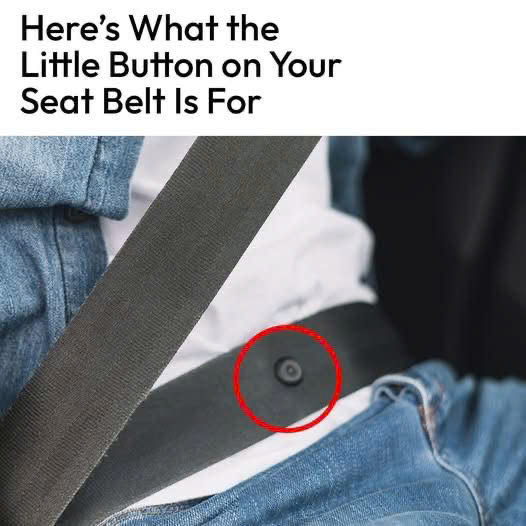
The seat belt stop button, often referred to as a seat belt stopper, is one of the smallest and most easily overlooked components of a vehicle’s safety system. However, it plays a crucial role in ensuring both comfort and convenience.
This tiny plastic piece is strategically placed along the seat belt strap, typically just a few inches above the latch plate, to prevent the metal tongue (latch plate) from sliding too far down toward the retractor. While it may seem like a trivial detail, having a functional stop button significantly enhances the driving experience for both the driver and passengers, while also contributing to overall safety.
The Importance of the Stop Button
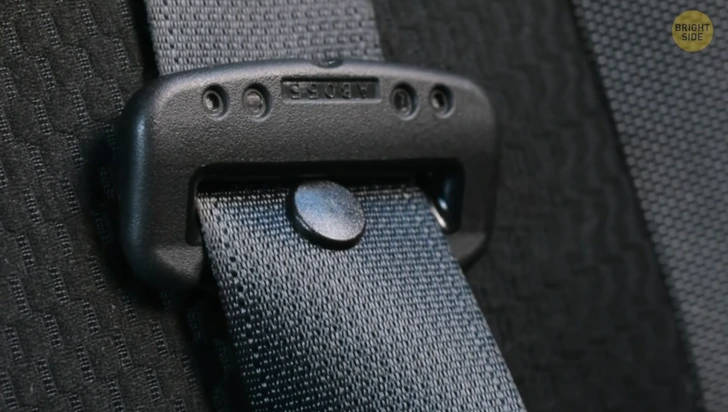
Imagine the simple task of getting into your car. Typically, when we sit down, we instinctively reach over to grab the seatbelt latch plate, expecting it to be exactly where we left it—visible, easy to grab, and ready to fasten.
If the stop button fails to work, however, the latch plate might slide all the way down to the retractor at the bottom of the belt. Picture the frustration of having to awkwardly search for the latch plate each time you get into the driver’s seat. This extra step can be particularly annoying when you’re in a rush, carrying items, or dealing with limited mobility.
This accessibility allows the buckling process to be smooth and efficient. Instead of awkwardly twisting your body or fumbling to find the latch plate, you can quickly and easily secure your seatbelt. For those with physical challenges such as reduced shoulder mobility, arthritis, or a recent injury, the effort needed can vary significantly. The seatbelt stop button does more than simply keep a metal part in place; it ensures a smoother, less frustrating start to your journey.
Making Sure the Belt is Aligned Correctly
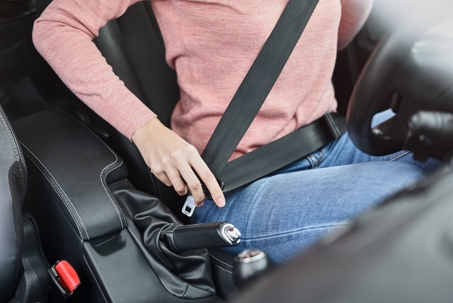
The correct positioning of the latch plate is not only important for convenience but also for ensuring that the seat belt fits properly on your body. For the seat belt to function effectively, it should lie flat against your chest and collarbone, while securely resting across your pelvis.
If the latch plate keeps sliding down, you might be tempted to wear the belt incorrectly or even skip using it entirely, as adjusting it properly can become a hassle. Over time, this could lead to the development of unsafe habits or a decline in seat belt usage. Keeping the latch plate in its proper position, with the help of the stop button, is essential for maintaining the correct alignment of the belt. This helps ensure the seat belt provides the best possible protection in the event of a sudden stop or crash.
What happens if it breaks?
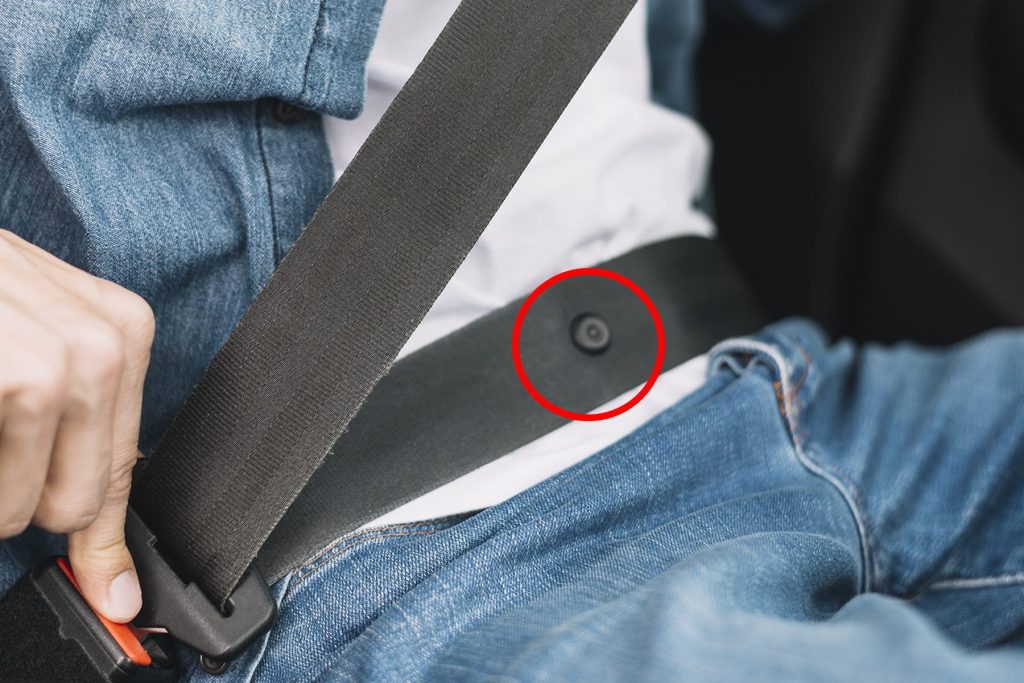
The stop buttons on seat belts may break or even fail over time, just like any other component that is subjected to heavy use. Repeated stress, buckling, and pulling can cause tiny plastic fragments to break, loosen, or even fall off entirely. The latch plate loses its secure position in the absence of the stop button.
This frequently results in the annoying situation where you have to tug on the belt repeatedly in order to reach the latch plate. In addition to being inconvenient, a damaged stop button may result in inappropriate use of a seat belt. If you have to adjust the belt all the time, you may become careless about wearing it correctly, which could endanger your safety.
When young children or elderly passengers frequently ride in your car, lacking a stop button can be quite inconvenient. Some younger passengers may struggle to fasten their seat belts on their own, while older individuals with reduced mobility may find it uncomfortable to reach for the latch plate. Ensuring that the stop button is functioning properly and in good condition can significantly impact the overall comfort of passengers and encourage them to buckle up safely.
A Simple and Fast DIY Replacement
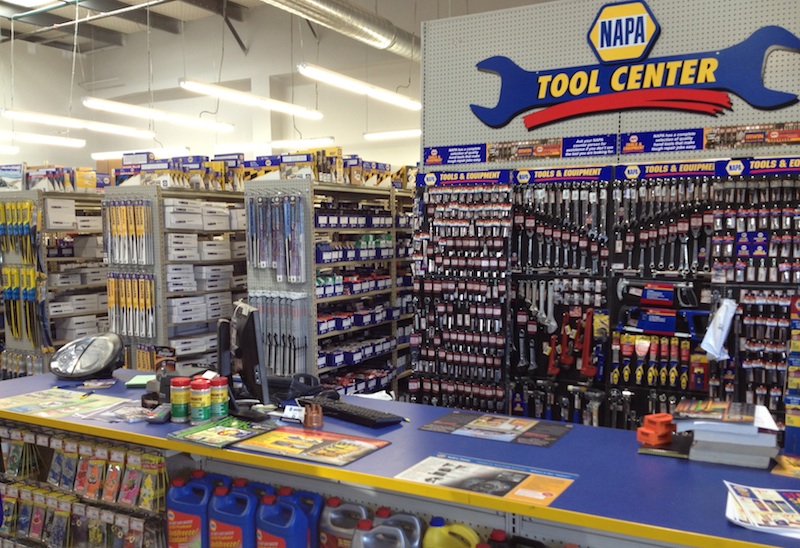
Fortunately, fixing a damaged seat belt stop button is not costly or challenging. Replacement kits are readily available online, at vehicle parts stores, and even in certain department stores with automotive departments. Typically, these kits have two plastic parts that click through the belt’s fabric to join. In order to modify or repair the stop button, you should:
- Look for an Appropriate Replacement Kit: Find a kit that matches your specific make and model, or opt for a generic one that’s designed to fit a variety of vehicles. The expense is typically quite low, usually only a couple of dollars.
- Find the Right Spot: Pull the seat belt all the way out to see where the original stop button used to be. It’s typically placed a few inches higher than where the latch plate naturally settles when the belt pulls back. Positioning it here keeps the latch plate easy to reach.
- To install the new button, start by opening the kit. Then, take one half of the stop button and position it on one side of the belt, placing the matching half directly on the opposite side. Push them together firmly until you hear a snap, indicating they’re secure. At times, you might find that the instructions suggest using pliers or a small hammer to achieve a snug fit. Take care not to harm the belt fabric—use just the right amount of force to secure the pieces together.
- Give It a Try: Once you’ve installed it, give the latch plate a gentle pull to make sure it doesn’t slide past the button anymore. The stop button is designed to keep it firmly in place, bringing back the convenience and functionality you’ve been lacking.
Understanding the Broader Aspects of Vehicle Safety
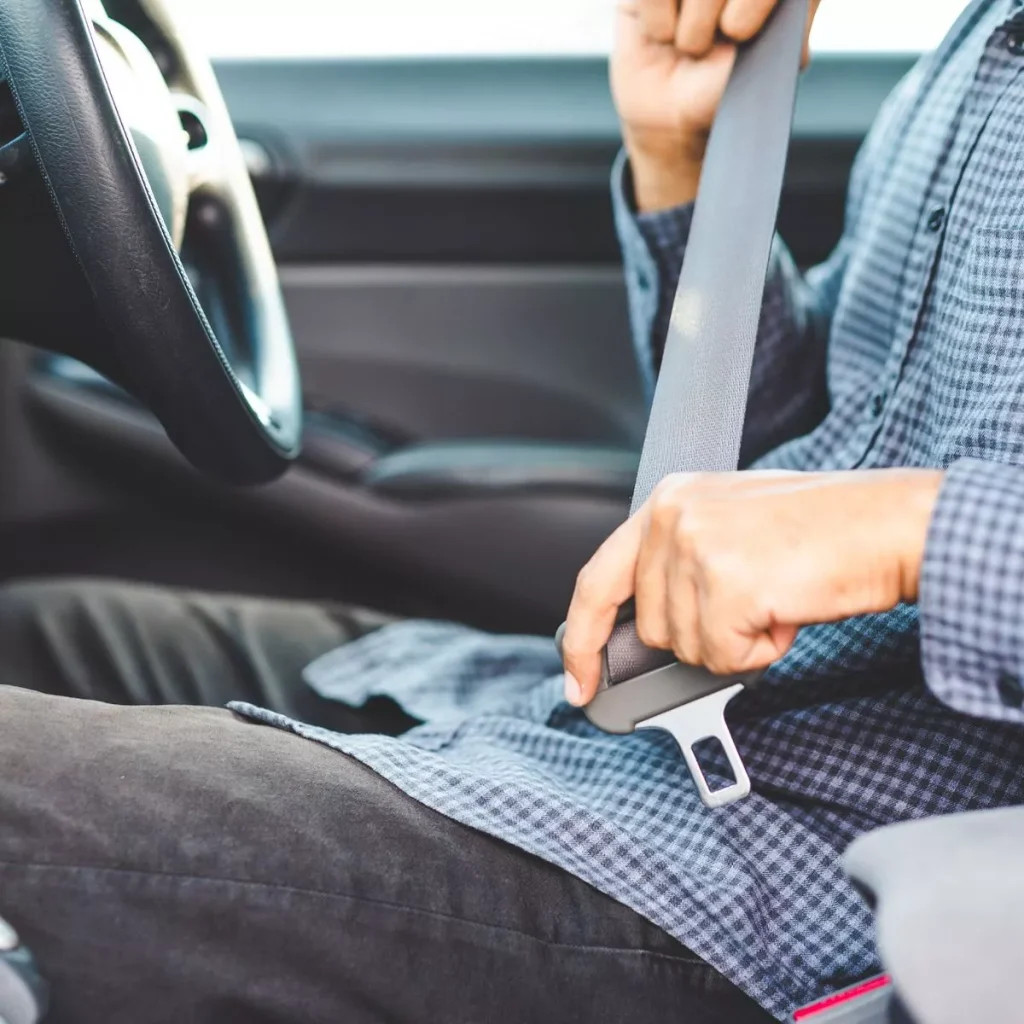
Even though the stop button might not seem like much, it’s crucial to monitor its health as part of your car’s maintenance. The buckle, the retractor mechanism, the pretensioner (found in more recent models), and the webbing itself are the many parts of modern seat belt systems that function in unison. Each of these components is essential to ensuring that, in the event of an accident, the seat belt retains occupants safely in their seats and reduces the risk of severe injury.
A broken or absent stop button may seem inconsequential in comparison to more complex safety measures, yet it has a substantial impact on how passengers use and consistently use seat belts. Maintaining your car’s safety features, even the smallest ones, is an investment in your own and your passengers’ wellbeing.
To sum up, even the slightest details can make a big difference.
Despite its modest size, the seat belt stop button is essential to ensuring that fastening your seat belt is a reliable, comfortable habit. Safety and convenience are increased when the latch plate is kept accessible and positioned correctly.
If you encounter an issue, there is an easy, low-cost solution that you can implement on your own in a matter of minutes. This simple step ensures that your seat belt system is in good working order and that you start with a secure, comforting click whether you’re traveling long distances or commuting.
